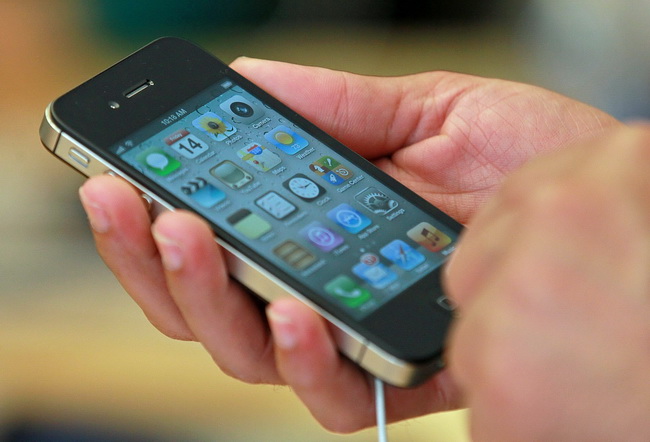Mobile technology is streamlining administration, reducing expenditure, personalizing and enhancing experiences, and aiding safety and security.
Globalization has shrunk the world and disruptive technology has brought it closer to anyone keen to explore. From the casual holidaymaker to the regular business traveler to the person embracing their wanderlust with a backpack on their shoulders and a smartphone in their pocket, mobile technology is streamlining administration, reducing expenditure, personalizing and enhancing experiences, and aiding safety and security.
This is the result of a number of factors but the way people want to economize their travel experience both in terms of time and money is fundamental. That could mean optimizing through better preparation thanks to, for example, virtual city tours prior to a visit. Or perhaps a search of restaurant reviews before a night out. It also means cash savings thanks to aggregators checking everything from flight tickets to the price of the nearest AirBnB.
Mobile is king

Image Source: pexels.com
It makes sense. Given the prevalence of smartphones in our pockets that the mobile phone would offer the greatest advantages to a traveler. According to Google research conducted with PhocusWright, almost half of smartphone users will turn to their mobile device to book and plan any travel excursion. And 61% will use their smartphone as the sole device to research and find a destination to travel to, planning trips around popular attractions, leisure activities, restaurants and shopping.
This has encouraged the sector to embrace such technology with an increasing number of uses now attributed to the smartphone. Economizing a guest’s time, for example, can be seen in emerging trends such as mobile check-in which reduces front desk friction and brings the advantages of “self-service” to the industry. Combined with a mobile key for electronic access, guests enjoy increased convenience and overall satisfaction.
Trustworthy
We’ve come to rely upon our smartphones. From mobile banking to social media to taking photos of our everyday life, we’re accustomed to utilizing them for a number of tasks. With 3.8 billion smartphone users expected by 2021, it’s clear why the travel sector is welcoming this type of technology to improve the customer’s experience. It’s also obvious why travelers are more than willing to embrace such innovation.
Part of that is due to seeing how new tech is changing our interactions with other sectors. With the advent of facial recognition augmenting security the banking sector has been able to significantly improve its service to customers. Similarly, while 5G offers new possibilities in terms of data transfer speed, we’ve already seen how 4G has enhanced the capabilities of smartphones to play games, conference call with video, and play movies in 4K on platforms such as Netflix and YouTube.
Indeed, smartphone gaming has seen a significant rise as a result of new capabilities afforded by more powerful processors, operating systems and internet speeds. In 2019, mobile games made up 60% of the total market revenue with the industry expecting a rise of 2.9% in the next four years. In the US, mobile gaming is currently worth $9.9 billion alone. This has witnessed games like the puzzle adventure game by Fantastic, Yes!, Returner 77, the open-world exploration game Nimian Legends: Brightridge and the action RPG Darkness Rises from Nexon Company enjoy high-definition graphics previously only capable on PC or console.
Meanwhile, the iGaming sector has complemented the opportunities afforded by fast internet speeds and the processing power of today’s smartphones with more dynamic and life-like casino games including the popular Live Casino in which players can interact with a real dealer when playing poker, baccarat, blackjack and other games.
Smartphones and the travel sector
The smartphone has, for a number of years, acted as our travel guide, agency and camera (for photos and video). But now it’s capable of so much more. It can tell us when we should board a plane, allow us to securely pay for goods and services, and show us where we are and navigate us to where we want to go. “Give them the tools,” Steve Jobs once said, and people will do “wonderful things” with technology.
This will continue, and the news is full of new travel related innovations. For example, more recently, KLM began interacting with customers via Facebook Messenger. It meant utilizing an app most smartphone users will already have access to and supplying key information including their boarding pass and flight information.
Elsewhere, hotels are embracing IoT to enhance personalization and control. Hilton is one of an increasing number of companies to allow guests to control heating, lighting, the television and room service via their smartphone. Similarly, GE Aviation and Delta Airlines amongst others have been trialling systems with RFID tags – trackable via a mobile app – that allow customers to know the location of their bags.
Augmented reality is also an emerging trend. It’s a great sales tool, allowing hotels to enhance the service their offering, and it gives businesses the opportunity to provide information 24/7 in an accessible and readily available way.
Some hotels have used the technology to provide guests with a virtual map of their room on entry. Holiday Inn, for example, even developed an AR experience that allowed guests to see depictions of famous people at the hotel. Best Western Kelowna also developed an interactive wildlife adventure to entertain guests with virtual animals dotted around the hotel grounds.
There’s more to come
Expect the travel experience to evolve rapidly over the next few years. With the advent of 5G there will be more possibilities to supplement current innovative services while developing and propagating new ones. The presence of AR and VR, the use of IoT, and a new complement of apps that can streamline our time and add value to our experiences will all become an increasingly prevalent part of travel.





























































































































































































































